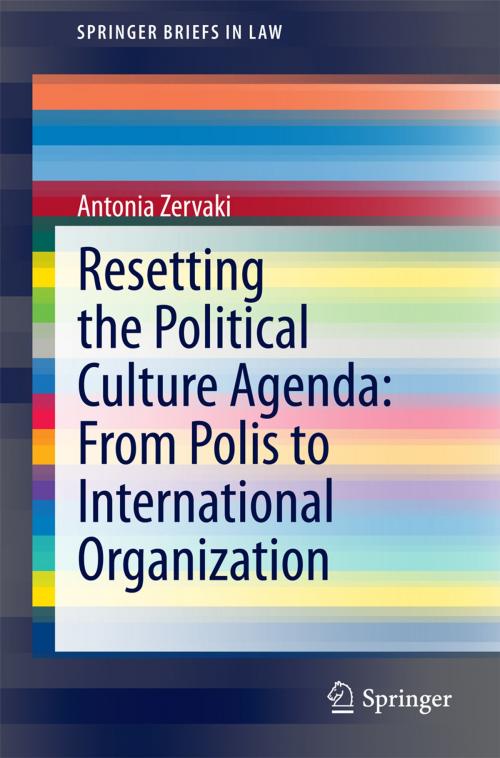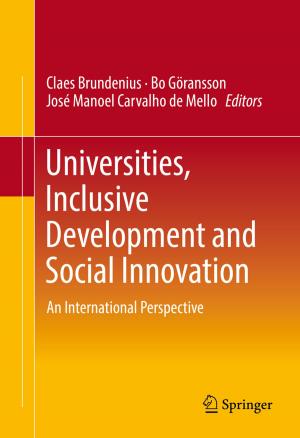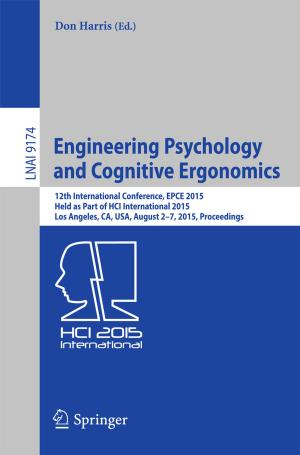Resetting the Political Culture Agenda: From Polis to International Organization
Nonfiction, Reference & Language, Law, International, Social & Cultural Studies, Political Science, International Relations| Author: | Antonia Zervaki | ISBN: | 9783319042565 |
| Publisher: | Springer International Publishing | Publication: | July 8, 2014 |
| Imprint: | Springer | Language: | English |
| Author: | Antonia Zervaki |
| ISBN: | 9783319042565 |
| Publisher: | Springer International Publishing |
| Publication: | July 8, 2014 |
| Imprint: | Springer |
| Language: | English |
The analysis of the formation processes and manifestations of political culture in the domain of international relations and organization lacks a concrete theoretical and methodological framework. However, the main theoretical and methodological deficits seem to be related to the need for a clear-cut definition of the concept itself as well as to the integration of political science methodological tools into the international institutional law debate. This book considers the basic theoretical and methodological requirements for the use of political culture as a conceptual tool in the field of international organization research. Moreover, it applies the core theoretical and methodological assumptions to three case-studies, namely, the United Nations, the Council of Europe and the European Union, which are perceived as agents of distinct political cultures in the international system.
The analysis of the formation processes and manifestations of political culture in the domain of international relations and organization lacks a concrete theoretical and methodological framework. However, the main theoretical and methodological deficits seem to be related to the need for a clear-cut definition of the concept itself as well as to the integration of political science methodological tools into the international institutional law debate. This book considers the basic theoretical and methodological requirements for the use of political culture as a conceptual tool in the field of international organization research. Moreover, it applies the core theoretical and methodological assumptions to three case-studies, namely, the United Nations, the Council of Europe and the European Union, which are perceived as agents of distinct political cultures in the international system.















